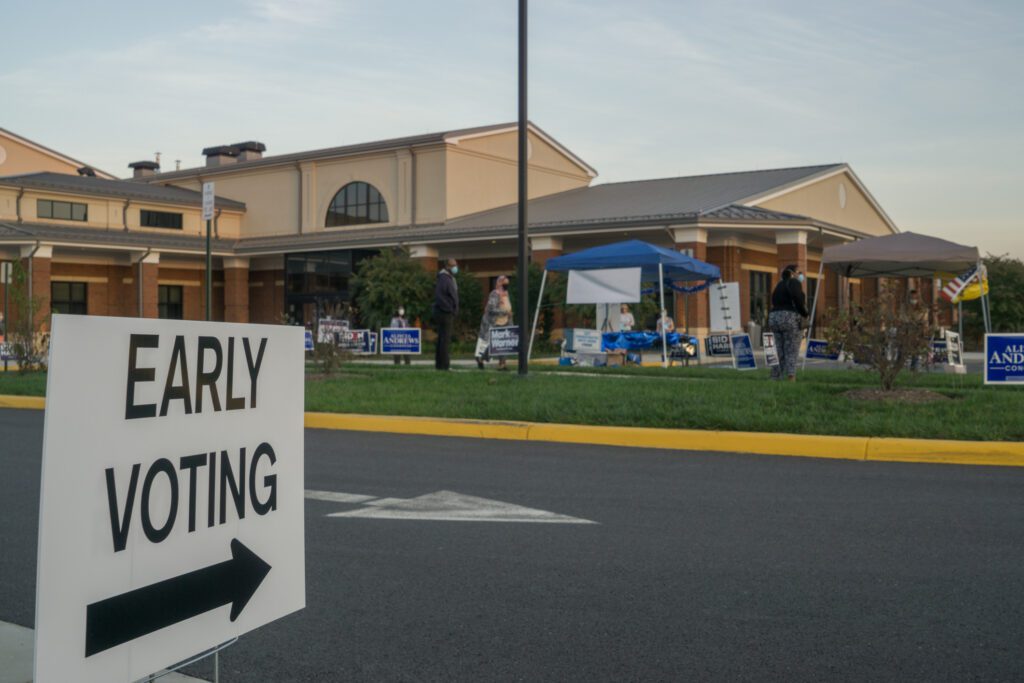A good friend of mine lost his big toe a few weeks ago. He’d ignored the early signs of diabetes and continued some unhealthy habits until a small cut on his toe turned into a big problem — and an eventual amputation. Since then, he’s drinking less, eating healthy and losing weight, potentially setting himself up for a longer life. Losing his toe wasn’t fun, but it may have been the kick he needed.
Next year, will Democrats feel the same about losing Virginia in 2021? Maybe, but only if they learn some lessons.
Terry McAuliffe’s political star originally rose with the Clintons. This time, his campaign for governor looked a lot like Hillary’s presidential a few years ago. The plan? Rerun a not-so-popular candidate, like someone with McAuliffe’s 48-percent approval near the end of his initial four-year term. For bonus points, coronate that candidate without a high-profile, competitive primary. In the general, yell “Trump” a lot and figure you can scare your base to the polls. Ignore signs of passion and/or local organizing on the other side. On Election Day, pop the champagne!
I know Virginia Democrats faced a difficult political environment this year. But unlikely candidates survive wave elections every time, and Virginia Dems might have won parity in the House of Delegates if they’d fought the right war. This time, two districts that that could have delivered a tie went to a recount, with the Republicans leading by margins around 100 votes each.
In previous years, competitive districts like these might have had as many as five field staffers assigned to them by the Democratic coordinated campaign, but I’ve heard that this time each had one. As someone I spoke with after the election said, “field fell off the board” for Democrats in 2021.
Field organizing is typically a young staffer’s game, and many of this year’s crop got their formative experience in the pandemic year of 2020. Less familiar and comfortable with face-to-face retail politics, they may not have put the emphasis on knocking doors and setting up local volunteer networks that the Democratic coordinated campaign did the last time McAuliffe won.
In 2013, the coordinated campaign’s data-heavy GOTV operation had more than 200 field staff mobilizing teams of volunteers at the end, possibly delivering victory in a surprisingly close race. But as so often happens in Democratic politics, the people moved on and the apparatus decayed. In 2021, Virginia Democrats almost certainly lost winnable races down ballot.
If Democrats want to survive another wave next year or any other, they need to learn to build the persistent capacity to do it, starting yesterday. For example, Republicans excel at supporting candidates from school board on up, grooming a bench of potential state legislators, governors and members of Congress for the long term. Democrats too often focus on the top of the ticket and leave the down-ballot candidates to fend for themselves, at least until the final GOTV push.
Just as field organizers need time to recruit and train volunteers, future leaders need to time to learn how to run and win. And when Democratic voters are motivated to turn out for their local candidates, the top of the ticket might just benefit, too.
But unless down-ballot campaigns have the expertise and the resources to get in front of voters, organize volunteers and get the people who support them to the polls, Democrats will surely lose even more races they don’t have to, all along the line. Note that we haven’t even talked about trying to persuade anyone to support the Democrats who doesn’t already, but you get a sense of what I think is the minimum that ought to happen in the next eleven months. Who’s doing it?
One critical post-election digital question: Did we all just pound the same few Virginia voters on Facebook?
In my work in Virginia this time around, I got to turn Hometown Project videos into digital ads targeting an ideologically broad swath of voters on behalf of Democratic candidates in 21 state delegate districts. We put most of our paid digital outreach budget into programmatic ads, but we still included Facebook in the mix. Since we didn’t have access to a district-specific geo-targeting tool for Facebook this year, we relied on voter-file exports for targeting. Where possible, the files included emails and phone numbers.
Like a lot of other people relying on the voter file, we reached a relatively small percentage of each list, generally well under 50 percent and often much lower. Some people on our lists wouldn’t be using Facebook in the two weeks we ran ads, but I know we missed many others because Facebook couldn’t match them to its customer list, even with emails or mobile numbers. Meanwhile, we paid a lot to reach that small slice of our lists, far more than the cost to expose the same eyeballs to a programmatic ad.
Our experience was not unique, at least according to my conversations with other digital practitioners. I would bet that part of the problem is that we’re all using at root the same voter file, regardless of what data vendor provided and enhanced it. And naturally, Facebook is going to successfully match the same relatively small portion of any list regardless of who uploads it. As a result, I think many of us competed to put ads in front of the same small slices of Facebook users — the ones easiest to match to the voter file.
I haven’t heard this problem discussed before, but I suspect it’s a serious limit for people using voter-file Facebook targeting in any environment where a lot of other groups are doing the same. And as more of us try the tactic, the problem will only get worse. If I can avoid using custom audiences on Facebook next year, I will. Once the district lines are set, who wants to sell me a good geo-targeting mechanism for state legislative races?
Colin Delany is founder and editor of the award-winning website Epolitics.com , author of the 2021 edition of “How to Use the Internet to Change the World – and Win Elections,” a twenty-five-year veteran of online politics and a perpetual skeptic. See something interesting? Send him a pitch at cpd@epolitics.com.



